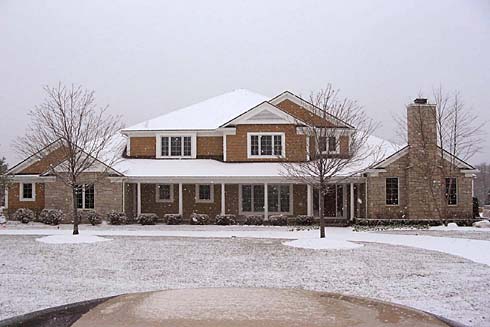JUDICIAL FORECLOSURE
Understanding Judicial Foreclosure in Real Estate
In the realm of real estate and property law, judicial foreclosure is a crucial process that can significantly impact both property owners and creditors. Understanding what judicial foreclosure entails and its implications is essential for anyone involved in real estate transactions and property ownership.
What is Judicial Foreclosure?
Judicial foreclosure is a legal process through which a property is sold to satisfy a lien, typically a mortgage, through a court-supervised procedure. It is an alternative to non-judicial foreclosure, which does not involve court oversight and is governed by the terms of the deed of trust or mortgage.
The Process of Judicial Foreclosure
The process of judicial foreclosure typically begins when a mortgage borrower defaults on their loan payments. Upon default, the lender may choose to pursue judicial foreclosure as a means to recover the outstanding debt by selling the property secured by the mortgage.
The judicial foreclosure process involves the following key steps:
Filing a Lawsuit:
The lender initiates the process by filing a lawsuit against the borrower. The lawsuit aims to obtain a court order to foreclose on the property.
Court Oversight:
Unlike non-judicial foreclosure, where the process is governed by the terms of the deed of trust, judicial foreclosure involves court supervision at every stage of the foreclosure process.
Auction or Sale:
Once the court grants the foreclosure order, the property is typically auctioned off to the highest bidder. The proceeds from the sale are used to satisfy the outstanding debt, including the principal balance, interest, and any associated fees and costs.
Implications of Judicial Foreclosure
Implications of Judicial Foreclosure
For property owners facing judicial foreclosure, the process can have significant ramifications. The loss of their property through foreclosure can impact their creditworthiness and financial stability. Additionally, the legal proceedings and potential public auction of the property can be stressful and emotionally challenging for the property owner.
From the lender's perspective, judicial foreclosure provides a legal avenue to recover the outstanding debt secured by the property. However, the process can be time-consuming and may involve legal costs, which can impact the overall recovery of the debt.
Legal Considerations and Redemption Period
It's important to note that judicial foreclosure is subject to specific legal considerations and varies by jurisdiction. Some states may have redemption periods, which allow the borrower to reclaim the property by paying off the debt within a specified period after the foreclosure sale.
Understanding the legal framework and specific regulations governing judicial foreclosure in a particular jurisdiction is crucial for both borrowers and lenders involved in the process.
Conclusion
In conclusion, judicial foreclosure is a significant legal process in real estate that can impact both property owners and creditors. Whether you are a homeowner facing foreclosure or a lender seeking to recover a debt, understanding the implications and legal nuances of judicial foreclosure is essential for navigating the complexities of real estate transactions and property law.
MORE REAL ESTATE TERMS
A, B, C, D, E, F, G, H, I, J, K, L, M, N, O, P, Q, R, S, T, U, V, W, X, Y, Z
Featured New Home

Featured Mortgage Brokers
- HOMESTAR FINANCIAL CORPORATION, WINDER, GA
133 W ATHENS ST STE I
WINDER, GA 30680 - ACADEMY MORTGAGE CORPORATION, CINCINNATI, OH
11590 CENTURY BLVD STE 112
CINCINNATI, OH 45246 - SUMMIT MORTGAGE INC, FORT WAYNE, IN
8614 SAINT JOE RD
FORT WAYNE, IN 46835 - MOVEMENT MORTGAGE LLC, COLUMBIA, SC
1129 SPARKLEBERRY LANE EXT
COLUMBIA, SC 29223 - FIDELITY BANK, ATHENS, GA
1045 S MILLEDGE AVE STE 200
ATHENS, GA 30605